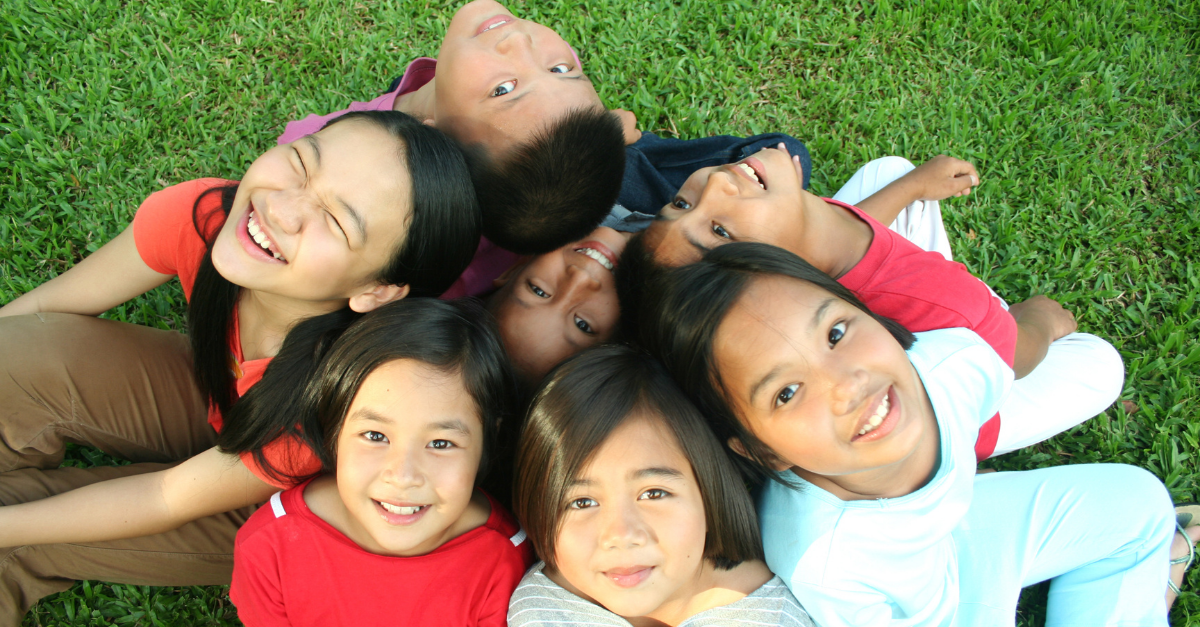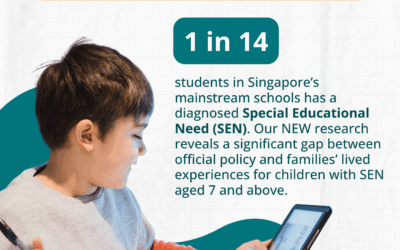If you’ve only got a minute:
- The Economic Reason: We can’t afford to waste anyone’s potential. People are our “only natural resource,” and fewer children are being born than ever before.
- The Scientific Reason: Our children only get one shot at childhood – and getting it right matters significantly more than we once believed, with early exposure to stress, trauma, and harsh physical discipline contributing to mental health challenges and anti-social behaviours even into adulthood.
- The $$ Reason: We can afford it! Singapore has become a first-world country, and this means that “first-world problems” can no longer be dismissed.
- The Moral Reason: Our children depend on us to make the right choices for them. We have a responsibility to ensure that across all domains (health, education, economic, etc.) we are enacting policies that give our children the best chance to thrive, based on the evidence and resources we currently have available.
Why should children be at the heart of policy?
Because:
The Economic Reason: We can’t afford to waste anyone’s potential.
Our people are our strength – and we’re making fewer of them than ever before. Investing in our people – our “only natural resource” – will be necessary to compete in the AI economy, which values flexible thinkers and collaborative problem solvers.
In the context of historically low birth rates, children are a diminishing “natural resource” – one that we truly cannot afford to be reckless with. It no longer makes sense to rank, sort, and separate children based on academics at a young age; nor to saddle them with early academic stress that can contribute to mental health issues (and reduce productivity) later in life. This alone is reason enough to reorient our policies towards children, building a world in which no child’s potential is ever wasted.
The Scientific Reason: Our children only get one shot at childhood – and getting it right matters significantly more than we once believed.
The science of childhood has grown by leaps and bounds since our public policies were put in place. We now know that early exposure to stress, trauma, and harsh physical discipline can have profound negative impacts, contributing to mental health challenges and anti-social behaviours even into adulthood.
Conversely, we know so much more than we did even 10 years ago about what makes children thrive – emotionally, relationally, and intellectually. We have a significant opportunity to update our policies in light of this new information, to better support children’s flourishing.
In some ways, our system has adapted to follow the science – but in other ways, it hasn’t. To take just one example, when the PSLE was first held in 1960, it reflected international best practices drawn from the British system. However, it is no longer in line with contemporary scientific understandings of how children learn, which emphasize student-led, collaborative, and inquiry-based approaches.
We pride ourselves on having public policies that are evidence-informed and cutting-edge, but this has not always extended to the realm of childhood. It is time to rethink our policies around children, leveraging the tremendous amount of research that has been done in recent years to adopt evidence-informed practices that give our children the best chance to thrive.
The $$ Reason: We can afford it!
Singapore has become a first-world country, and this means that “first-world problems” can no longer be dismissed. Some things that may have been previously viewed as “nice-to-haves” – like an education that nurtures 21st Century Competencies; early detection, differentiated instruction, and consistent accommodations for children with SEN; children’s easy access to mental health professionals; smaller class sizes, in line with international standards; or adequate, protected time for developmentally-necessary activities like rest, play, and sleep – must now be prioritized if we are not to fall behind other rich countries.
The good news: none of these changes should be out of reach for the fourth-richest country in the world. All that’s required is careful planning that recognizes that children no longer can (or need to be) an afterthought.
The Moral Reason: Our children depend on us to make the right choices for them.
Every policy decision we make – what we build, the values we promote, and the systems in which we invest our money – determines the world that our children will live in.
We have a responsibility to ensure that across all domains (health, education, economic, etc.) we are enacting policies that give our children the best chance to thrive, based on the evidence and resources we currently have available. We must never lose sight of who we are building this country for.
The time to act is now.
We are at a critical crossroads. With birth rates at historic lows, rising mental health concerns in children and youth, and an increasingly complex global economy, we cannot afford to treat our children’s well-being as secondary. The science is clear, the resources are available, and the moral case is undeniable.
Putting children at the heart of national policy is no longer just a vision – it is a necessity for Singapore’s continued growth, resilience, and humanity.
This is where the change begins.
The upcoming forum is more than a conversation. It is a catalyst for reimagining how Singapore supports, nurtures, and protects its youngest citizens. Whether you are a policymaker, educator, parent, healthcare professional, or concerned citizen – your voice matters.




